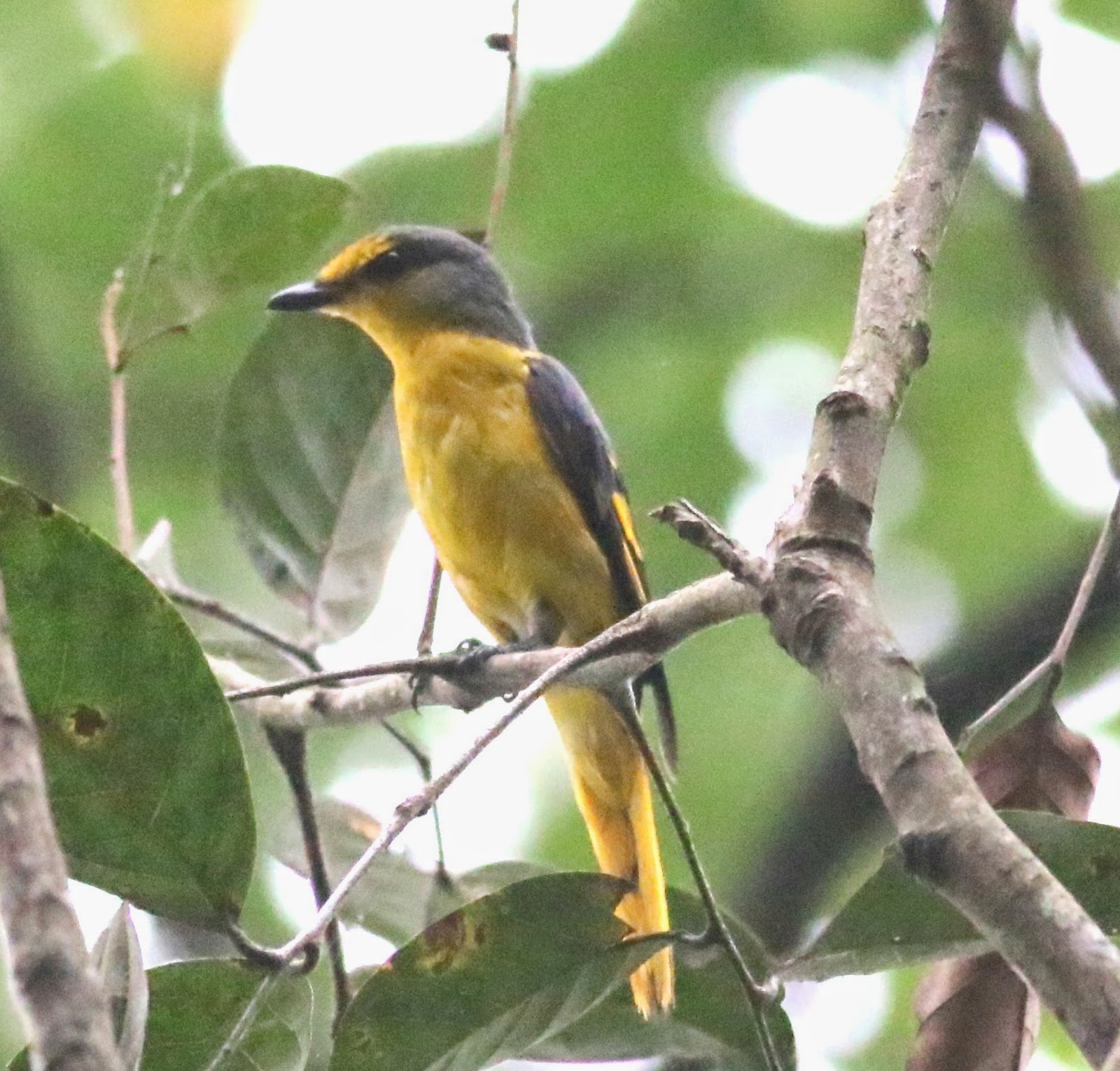It was believed that the world is currently surrounded by about 31% of rain forest. In Malaysia the percentage is about 56.4% as of year 2011
(source: Forestry Department Peninsular Malaysia). Forest has been with earth since the era of dinosaurs, sustaining the existence of modern homo sapiens until today. Scientist, biologist, entomologist, herpetologist and even anthropologist have been treating the forest as their second home. If you are not too much of a birding person, you could actually see many things in the jungle example plants, flowers, insects, bugs, butterflies, fruits etc. With this view in mind i went for a short exploratory stroll along the jungle trails of Ulu Langat forest.
Here is a trail leading to Gunung Nuang. Hikers and Trekkers used this place as their endurance training ground. Quite a safe place to watch wildlife and insects.
Flowers of Wild Ginger Plant in full bloom
 |
| Rufous Piculet |
Here is a bug
Note: This could be a common "Leaf Beetle" from the family "Chrysomelidae". Apparently it has been a food source for some people who called: "Entomorphagist"
This is not your ordinary grapes. An orang asli once told me that if there are no animals eating a fruit, don't waste your time looking at it. It is probably poisonous!
 |
| White-Tailed Flycatcher |
It perched silently inside a densely shaded tree. My lifer for this year !
(note: White-Tailed Flycatcher is a species of flycatchers from the genus "Cyornis" in the "muscicapinae" family which is the subfamily group from the old world flycatchers family "Muscicapidae". IUCN has rated this flycatcher as "least concern" but it is certainly not a common bird down here).
 |
| Sooty Barbet (Calorhamphus hayii) |
Ha ! Ha ! Ha ! you must be joking !
Note: In the latest 9th edition (2014) of the Clements checklist/checklist 6.9, brown barbet has now been split into two species i.e Calorhamphus hayii (which was said to be widely distributed in Southeast Asia) and Calorhamphus fuliginosusas (which was said to only occur in Borneo).
It was encouraging to know that there are clear streams around.
An Oriental Magpie Robin was trying to figure out how to eat a cicada which it has found on the roadside.
 |
| Rufous-Tailed Tailorbird |
 |
| Grey-Headed Canary Flycatcher |
Another bug - a BIG one that is ! Could it belong to the beetle family "Chrysomelidae"?
 |
| Astictopterus jama jama aka Forest Hopper |
This is a forest dwelling skipper. It was reported that there were about 1,200 types of butterflies in Malaysia of which 1,180 are in Peninsular Malaysia (latest figure (2014): 1,967 butterfly sp in Malaysia). For bugs or other insects, you may triple the figure mentioned. So the chances of you discovering a new insect or butterfly and have them named after you is much higher then say birds. In Malaysia we do have our own scientist been named after insects or animals for example Prof Yong HS (Topomyia yongi - a type of mosquito), Rhacophorus norhayati (a type of flying frog), Phobaticus chani (the world longest stick insect) to name you a few.
Could this be a "Vestalis smaragdina" or is it "Vestialis gracilis" ? But it is a damselfly for sure.
(Note: according to Professor Norma, who is currently the Head, Institute of Biological Science, University of Malaya, this is a female Vestalis which makes it a bit difficult to differentiate between V. amethystina or V. amoena)
Tickell's Blue Flycatcher perched on a tree branch and on a dead tree stump.
 |
| Wallace's Hawk Eagle |
My second lifer within a week. It was silent and was taking short flights from one tree canopy to another. Subject to unreported sightings and based on current records, the sighting of this raptor was the first of its kind at this location. IUCN status: "Vulnerable" !
(note: It looks like an adult bird and the size of its "crop" may suggest that it has just taken some hefty meal)























































